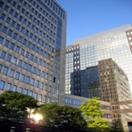Birmingham bracing itself for commercial property explosion
PallMallWith continued development of the HS2 rail project, and recent
road infrastructure improvements like the M6-Toll, Birmingham is preparing itself for a boom
in commercial property demand.
Later this year the government's proposed £33 billion high speed
rail network is likely to be ratified, which will improve transport
links from Britain's second largest city to the capital. This is
likely to bring a £1 billion-a-year uplift to the West Midlands
city, increasing demand for commercial office and industrial
space.
Once completed, the 13-year-long HS2 project will halve journey
times to the capital, allowing commuters and business travellers to
reach London in around 45 minutes.
Andrew Adonis, Labour peer and former transport secretary,
said:
"I've travelled the world and not yet found a city that says
they would be better off without High Speed Rail. [Most
importantly] gross value added is directly correlated to proximity
to London."
Many argue that Birmingham is already beginning to reap the
rewards of the HS2 project, despite being over a decade away from
completion:
"HS2 is giving private and public sector developers the
confidence that we should start thinking sooner rather than later
and start to create the right product for the market," said Dav
Bansal, of Birmingham-based Glenn Howells Architects.
Analysts say that as soon as the project is approved, an
explosion of property speculation will begin, with demand for
office buildings growing and developers looking to purchase new
sites and build additional infrastructure.
Projects like Glenn Howells' £450m speculative development of Paradise Circus
project will come to fruition; this will potentially offer 10
office plots, along with retail space, a hotel and entertainment
facilities.
Multinational organisations will also be encouraged to use the
city as their primary British base; this could see financial
institutions like City Group or Morgan Stanley branching into
Birmingham for the first time.
Such stark improvement is predicted as a result of increasingly
high property prices in London; it is likely that foreign investors
will be looking to purchase higher-yielding development outside of
the capital, with Birmingham being the most obvious choice,
particularly in light of new developments.
With comparatively low labour costs and a large regional pool of
skills, Birmingham is an increasingly popular location for
employers. With a recently launched enterprise zone, along with
rates relief and simplified planning advantages, Birmingham is
expected to create over 40,000 new jobs in the coming years.
—
Pall Mall Estates have a wide range of low cost commercial properties across the UK.
Take a look at our available spaces here or get in touch with our experienced team here.







